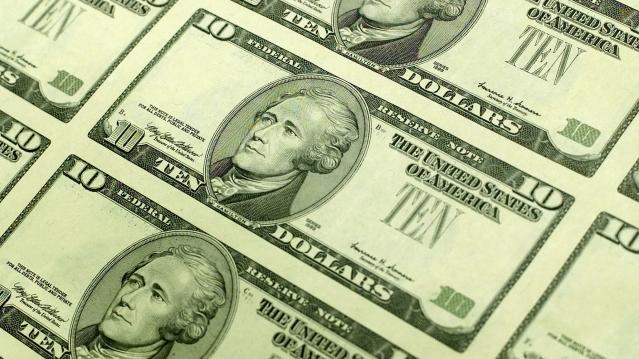Why a Woman Will be on the $10 Bill and Not the $20

The announcement that the Bureau of Engraving and Printing will add a woman to the portrait of Alexander Hamilton on the $10 bill has stirred a lot of conversation as to why the Treasury was not redesigning the $20 bill instead.
It turns out there is a very simple explanation: The move is based on recommendations from the Advanced Counterfeit Deterrence (ACD) Steering Committee.
Related: The Best Bank in Every Region Across America
"Currency is redesigned to stay ahead of counterfeiting," the US Treasury says. "The ACD Steering Committee recommended a redesign of the $10 note next. The ACD will make its next recommendation based on current and potential security threats to currency notes."
The ACD bases those recommendations on the "current and potential security threats to currency notes," and it turns out that the $10 bill is at a greater threat of being counterfeit than the $20 bill.
Secretary of the Treasury Jack Lew announced the change in a statement on YouTube: "I'm proud to announce today that the new $10 bill will be the first bill in more than a century to feature the portrait of a woman.”
Hamilton will share the note with a woman who Lew is expected to choose by the end of the year. The new bill will enter circulation after 2020.
This article originally appeared on Business Insider.
Read more from Business Insider:
Fitbit opens up 52%
Why people are angry about the $10 bill change
The 'Tesla of scooters' is finally available and it looks incredible
Small Business Owners Say They’re Raising Worker Pay
A record percentage of small business owners say they are raising pay for their workers, according to the latest monthly jobs report from the National Federation of Independent Business, based on a survey of 10,000 of the group’s members. A seasonally adjusted net 35 percent of small businesses say they are increasing compensation. “They are increasing compensation at record levels and are continuing to hire,” NFIB President and CEO Juanita Duggan said in a statement accompanying the report. “Post tax reform, concerns about taxes and regulations are taking a backseat to their worries over filling open positions and finding qualified candidates.”
The US Is Running Short on More Than 200 Drugs

The U.S. is officially running short on 202 drugs, including some medical staples like epinephrine, morphine and saline solution. “The medications most vulnerable to running short have a few things in common: They are generic, high-volume, and low-margin for their makers—not the cutting-edge specialty drugs that pad pharmaceutical companies’ bottom lines,” Fortune’s Erika Fry reports. “Companies have little incentive to make the workhorse drugs we use most.” And much of the problem — “The situation is an emergency waiting to be a disaster,” one pharmacist says — can be tied to one company: Pfizer. Read the full story here.
Chart of the Day: Could You Handle a Sudden $400 Expense?

More Americans say they are living comfortably or at least “doing okay” financially, according to the Federal Reserve’s Report on the Economic Well-Being of U.S. Households in 2017. At the same time, four in 10 adults say that, if faced with an unexpected expense of $400, they would not be able to cover it or would cover it by selling something or borrowing money. That represents an improvement from 2013, when half of all adults said they would have trouble handling such an expense, but suggests that many Americans are still close to the edge when it comes to their personal finances.
Kevin Brady Introduces Welfare Reform Bill

The Tax Policy Center’s Daily Deduction reports that Rep. Kevin Brady (R-TX), chair of the House Ways and Means Committee on Friday introduced The Jobs and Opportunity with Benefits and Services (JOBS) for Success Act (H.R. 5861). “The bill would rename the Temporary Assistance for Needy Families (TANF) program and target benefits to the lowest-income households. Although the House GOP leadership promised to include an expansion of the Earned Income Tax Credit as part of an upcoming welfare reform bill, this measure does not appear to include any EITC provisions.” The committee will mark up the bill on Wednesday.



